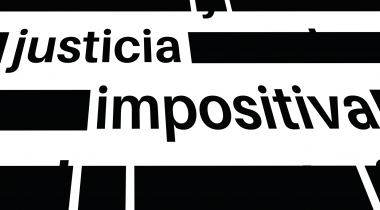
Naomi Fowler ■ A boost for the UN Tax Committee

We’re sharing here an article from Abdul Muheet Chowdhary, who is a consultant in the Policy Planning and Research Division of the Ministry of External Affairs in India and formerly a consultant with the United Nations. The article originally appeared here on the blog of GLOBTAXGOV – A New Model of Global Governance in International Tax Law Making.
UN tax committee gets a boost through new working methods
By Abdul Muheet Chowdhary [Views expressed are personal.]
The UN this month published a document titled ‘Practices and Working Methods for the Committee Of Experts On International Cooperation In Tax Matters’. For those who believe that the UN should play a stronger role in the governance of international tax, this is a welcome development. The document further deepens the institutionalisation of the UN Committee of Experts on International Cooperation in Tax Matters (henceforth UN tax committee) by developing new working methods and making several clarifications. Some of these are welcome while others are problematic. Overall, it is clarified that the working methods must be read in conjunction with the rules of procedure of the United Nations Economic and Social Council (ECOSOC) and in the case of inconsistency, the ECOSOC rules are to prevail.
- Role of Observers
The most important aspect of the new working methods concerns the observers. Observers include both official delegations sent to represent a country as well as non-state actors such as business, academics and civil society. Observers play an influential role in the UN tax committee. One must only examine the composition of any of the sub-committees of the UN tax committee to see the large number of observers, especially from business and industry. As an example, the composition of the sub-committee on extractive industries can be seen here. It consists of two co-coordinators and has four member countries as participants, meaning six countries represented. However, it has thirty observers, with thirteen (nearly half) representing business. Observers influence the committee by arguing their case and are often invited by sub-committee coordinators to present papers and guidance notes. These documents play an agenda-setting role and even make their way into final policy documents such as model conventions, handbooks and guidebooks. This can at times be problematic because the coordinator can succumb to vested interests and call only certain organizations such as big business or oil and gas majors to present guidance notes and in this way prepare policy in their interest. The working methods have several provisions regarding the role of observers and given their importance these require careful scrutiny.
Throughout the working methods, great care has been taken to ensure that observers are involved and are given due voice. This is rather problematic and a double-edged sword. In the present context, the UN tax committee is possibly the sole global tax institution in which developing countries are in a majority (albeit wafer-thin) and can freely express themselves. In theory it is possible that observers will include a mix of interests, but a cursory examination of the existing observers in the sub-committees makes it clear that many of them represent developed country interests . Apart from the aforementioned example of the sub-committee on extractives, one can also refer to the composition of the sub-committee on transfer pricing, which as of this writing has nineteen observers, of which nine represent business and one represents the OECD. In such a context, excessively involving developed country voices through the route of ‘observers’ amounts to a browbeating of developing country voices. Nevertheless, it is welcome that now at least some rules have been developed where none earlier existed, enabling some checks and balances on abuse of power. They are examined as follows.
Part III of the working methods deal with closed consultations. Observers are allowed to take part in these and point 9 even clarifies that closed consultations ‘should not impede obtaining relevant input from Observers’! Point 12 further clarifies that scheduling of these closed consultations should account for the attendance of observers. It is not mentioned as to how precisely it will be decided which observers to involve in such a consultation and why.
Part V deals with conduct of business and point 23 states that ‘input or information from Observers or other stakeholders should be given appropriate consideration in the work of the Committee, especially where comments have been requested by the Committee.’ It is not clarified who in the Committee can request this information, why and whether it can be challenged or opposed. Point 24 adds that even if inputs have not been requested from Observers, these can still be forwarded to the Committee if the Secretariat and Chairperson deem it necessary. This gives the Chairperson significant power in agenda-setting. Points 48 allows for an Observer State participant to be a co-coordinator of a subcommittee. Thus, even non-members of the UN tax committee can now be co-coordinators, though this can take place only on an ‘exceptional basis’. Point 49 clarifies that observers can be sub-committee members, institutionalising a long-followed practice.
On the positive side, it has been clarified that observers do not get to vote, and that the committee may decide to limit participation in a sub-committee only to members or to members and observer states. This is welcome. Even more welcome is point 54 which states, ‘the composition of Subcommittees should include a majority of Members and State Observers unless, on a recommendation from the Coordinator of a particular Subcommittee, the Committee agrees to a different composition of the particular Subcommittee.’ Presently in many of the subcommittees the members are outnumbered by observers. As mentioned, observers usually represent developed country interests and limiting their participation will reduce the ‘drowning out’ of developing country voices. This is buttressed by point 20 which addresses this issue and seeks to rectify it by stating that members should speak first before the floor is given to observers. Point 55 adds that sub-committees should try and ensure regional diversity and developing country representation.
2. Role of Sub-Committees and Coordinators
After observers, the next most important aspect of the working methods relates to sub-committees and coordinators. A large chunk of the UN tax committee’s work is carried out through the sub-committees. These working methods for the first time spell out some rules that will now govern their functioning. Point 42 clarifies the relationship between subcommittees and the committee by stating that subcommittees make recommendations, but the final decision is to be taken by the committee. Point 43 specifies that any Member can propose the creation or abolition of a sub-committee though it is not specified whether its creation requires consensus or majority support. The working methods only mention ‘sufficient support’ which is ambiguous. The possibility for creating more ad-hoc bodies has been potentially increased by allowing for mandate-driven subcommittees. This is welcome as it potentially enables the UN tax committee to deal with a much broader range of issues. The coordinator plays a powerful role as s/he will determine which observers can participate in a subcommittee, though this has to be approved by the Committee. As per point 58, members can now oppose the addition or removal of an observer. This is welcome and allows for checks on unwelcome ‘stacking’ of subcommittees. Point 62 allows coordinators to involve ad hoc observers in a meeting, though there is no provision to put a check on this. This needs to be monitored as it is liable to abuse.
Points 64 and 65 importantly encourage conference calls and electronic means of communication to maximise participation while keeping a convenient time in mind. Travelling all the way to the UN is often expensive for developing country participants and this provision eases things.
3. Additional working methods
The Secretariat and the Chairperson have been given the power to determine the provisional agenda which has to be subsequently approved by the Committee. The Chairperson’s powers have been increased to summarise the conclusions reached by the Committee and alter timelines for certain decisions. Point 21 clarifies that one member has one vote and that only members can vote, adding that ‘consensus is desirable’. This probably will be ignored because in the committee voting is necessary to break the deadlocks that arise. Point 22 says that the Committee can take decisions even when not in session and lays out the procedure for doing so. This can increase its productivity given that it has only two sessions in a year. The working methods contain some other details on procedures for approving documents.
Conclusion
The working methods are a boost to the UN tax committee’s overall functioning as it clarifies the powers and functions of various actors and creates new procedures to streamline and increase the committee’s efficiency. The new rules are largely beneficial and can limit the undue influence of outside actors such as observers, increase productivity by allowing decision making outside sessions and create ad-hoc committees to deal with a wider range of issues.
There are several unanswered questions, however. It needs to be clarified:
(1) how will it be decided which observers to invite for closed consultations,
(2) who in the Committee can request inputs from observers and whether there is any option to block such a request,
(3) whether Committee members can override the Chairperson if s/he decides to invite inputs from observers which are deemed unnecessary or unwarranted,
(4) what exactly the ‘exceptional basis’ is on which observers can be made sub-committee co-coordinators,
(5) what extent of support is needed for a Member’s proposal to create or abolish a sub-committee and
(6) whether it is possible to regulate the involvement of ad-hoc observers in sub-committee meetings.
It is hoped that future rules will fill these gaps. Such refinement of institutional rules will continue to strengthen the UN tax committee on its journey towards being a genuinely representative global tax authority.
Related articles

Tax policy and gender disparity: A call to action on International Women’s Day 2024

Policy research conference: How a UN Tax Convention can address inequality in Europe and beyond

The IMF’s anti-money laundering strategy review is promising, but it all comes down to implementation

New Tax Justice Network podcast website launched!

People power: the Tax Justice Network January 2024 podcast, the Taxcast

As a former schoolteacher, our students need us to fight for tax justice

El secreto fiscal…tiene cara de mujer: January 2024 Spanish language tax justice podcast, Justicia ImPositiva

The Corruption Diaries: our new weekly podcast

Tax Justice Network Arabic podcast #73: ملخص 2023


